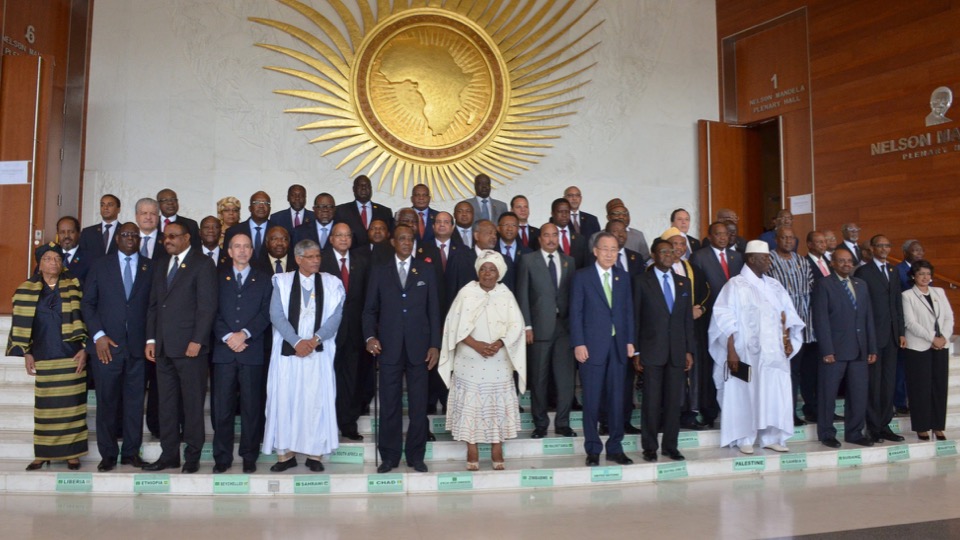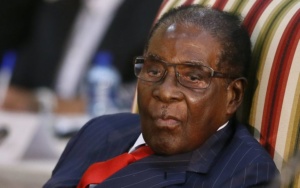By Peter Olorunnisomo- The year 2017 is coming to an end in a few days. It started with just about the same token but then in the beginning there’s always expectation and at the end satisfaction and /or regrets depending on an individual’s lot.

We thus want to take stock of our reportage and highlight possibilities as well from our editorial stables.
The year beckoned to Africa and exposed those inadequacies that the late Ali Mazrui would rue to call part of any heritage. We saw the seeming political shift in succession that challenged ruler-ship. Why African rulers, under a democratic dispensation, have successfully mobilised the advantage of incumbency to a tendency of perpetuation. Africa today boasts the highest number of the oldest rulers among the continents of the world. At least twelve are septuagenarians and octogenarians in the year. The argument about experience may not hold water given the dynamics of globalisation requesting that most developing and ailing economies need, not just the political will, but the erudition and astuteness of a professor and a chess grandmaster combined in order to live up to deserving the ‘popular’ votes that brought them to power.
Democracy now has a monarch feel to it as it is no longer surprising to have power passed from father to son or brother or cousin. The recycling of political power challenges the human capital and the national psyche of the nation. It can however be argued that nation-states or state-nation has been a driving force in the zeal to perpetuate individual of ethnic dominance within the walls of a country. The demerit here is that it does not account for the incidences of ethnic cleansing that Africa witnessed. Perhaps the greater shame is to the larger world, the world of those who passed political concepts, dried and tested, who have be found colluding to destabilise. Need we mention the oil companies who are international players? The genocide in Rwanda and the Sudan; or the never-ending war in the Congo which cannot cease because the fire that is stoking it does not come from the nozzle of a gun.
But we must learn lessons too. East and Central Africa would probably best receive accolades for the development and growth in the continent. The Mo Ibrahim index on governance reveals this but more importantly is the focus on trade and infrastructural development in that region. The Ugandan president becomes the revelation and apostle of the truism that a foreign policy is an externalisation of the domestic policy. Taking the reins of power, his attack at the culture of lethargy, which breeds corruption, has woken up the national consciousness to progress. And that they have done. Perhaps he might win the Mo Ibrahim award for heads of government.
Perhaps accounting for the development in this afrosphere is in the impact of sports. Senegal leads Africa on the FIFA chart and the Teranga Lions have done no worse. The Ugandan Cranes sacked their coach because the drive and thirst for glory is keen. The jostle for hosting rights for international championships is even now keener as the continent has understood that it isn’t just the pride of hosting but also the economic and social stimulant it offers the local economy. Africa must have borrowed a leaf from ex-FIFA President’s saga to want to turn to a younger persona but with experience and also ambition. A most visible immediacy is a review of continental matches to enable successful integration with matches and players’ goals for the international calendar.
We see diplomacy at play between Uganda and Senegal, Eritrea and Ethiopia. The amicable resumption of trade over-the-border between the former two, and the intervention of Eritrea against the threat of possible ‘political’ whipping from headmaster Trump. The African Union has struggled to improve its grounds. There are age-old situations that could use interventions and policy tools to make better. But it still hasn’t found an answer to. But one must recognise its ability this year to mobilise leaders into its stream of thought but it is not yet clear the degree of its Afrocentric pursuit. Overall, we can conclude that it certainly made a case for its presence.
We cannot conclude this review without the specifics of the migration which, like the slave trade, cost Africa hundreds of lives. The European Union countries seem to want to help but really just want to pay legitimate money to governments as agents of border control. The cause of migration rests squarely on the shoulders of the African leaders with some clearly redefining certain concepts like national interests, people’s mandate, responsible governance, etc. The political up-risings in Togo and Cameroon speak.

General Chiwenga of Zimbabwe has also re-defined what is perceived as a coup or is it military takeover or restoration of responsible leadership by means other than the democratic ballot box. The sub-plot is of course that of Mugabe versus Mugabe or should I say ‘Gucci’ Grace versus Robert. It really shouldn’t be like that but if Gucci Grace can file for divorce a week after he lost power claiming protection from him, then it is certainly a coup.
Kindly follow us on twitter:@AfricanVoice2








